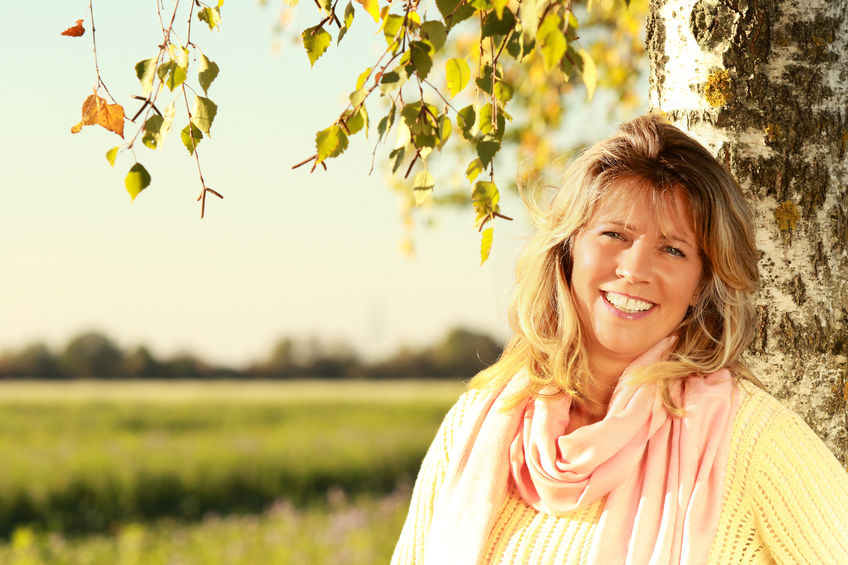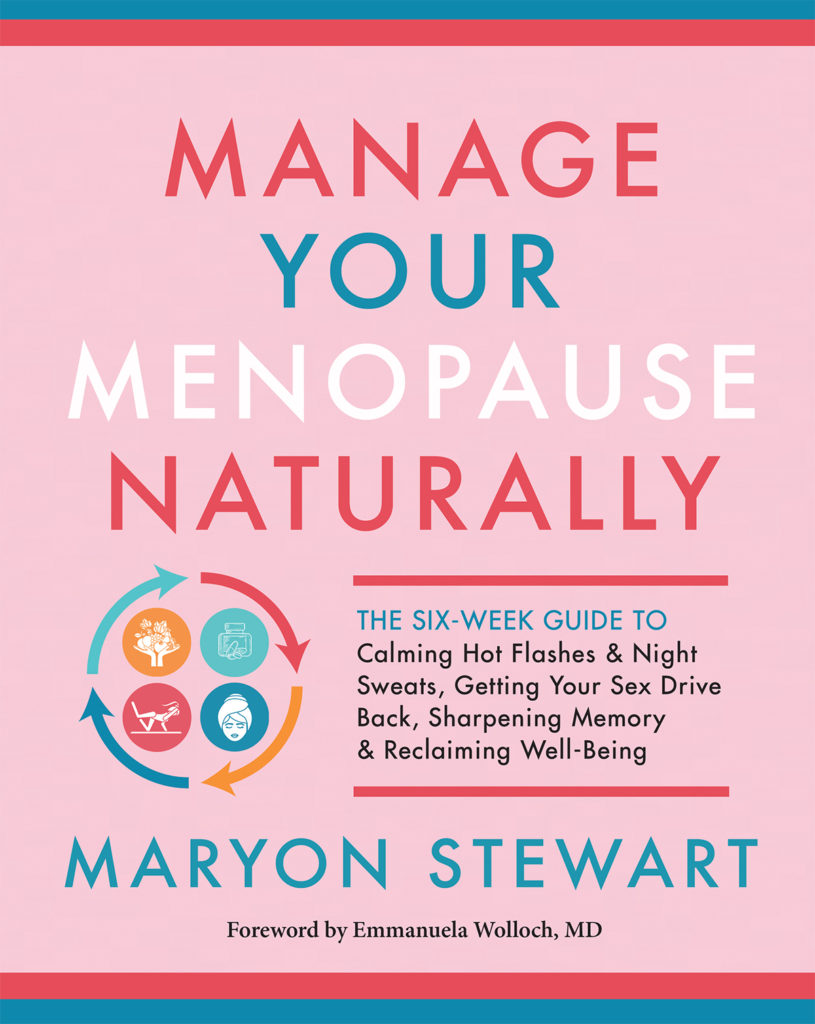
My ‘Changing the Conversation on Menopause’ survey of 1100 women shows that ninety-six percent of them don’t feel prepared for menopause, with well over two-thirds admitting to feeling completely unprepared and robbed of life as they knew it.
Imagine celebrating menopause as an achievement. It can, and should, be the beginning of a whole new satisfying chapter in our life, rather than feeling like the end of life as we knew it. With accumulated professional and social skills, improving financial stability and increasing amounts of leisure time once children have flown the nest, women should be in celebration mode. Why is it then that, in Western societies, celebration and menopause are hardly mentioned in the same conversation?
When young women see the first sign of menstrual blood, their mothers quietly celebrate their daughter’s arrival to womanhood. Following the delivery of our new born babies, whole families and close friends share our joy. So why then aren’t women expecting congratulations when they leave their fertile years behind and the prospect of being respected for their wisdom? According to surveys, most women are far too scared by their overwhelming symptoms and fading youth; often their brain fog is so extreme they can’t even remember the last sentence they uttered, let alone remember their accumulated wisdom.
How did menopause get associated with so many negative connotations? Well for a start, one hundred years or so ago, women weren’t living much past fifty, so what happened after menopause wasn’t really an issue. Women fifty plus were considered old ladies. Now that we can expect to live so much longer, and both the Baby Boomers and the X Generation have no plans to grow old gracefully, we need to seriously revisit conversations we are both witnessing and taking part in on the subject of our menopause.
Conversations with Our doctors
Conversations with our doctors should be informative and helpful, rather than resulting in women being palmed off with prescriptions for hormones and antidepressants, or told it’s all part of being a woman. In my survey, would you believe under 12% of women even consider going to ask their doctor for help or advice about menopause? And only 2% consult their practice nurse. It’s hardly surprising when the Mayo Clinic Survey published last year revealed that only seven percent of doctors and gynaecologists feel adequately educated to help women going through menopause.
In the Workplace
Women are seriously afraid of owning up to being menopausal in the workplace. While some companies and organizations are now creating policies and practices for women at this life stage, in the majority of cases line managers feel under educated on menopause and find conversations with employees awkward.
Nearly half of the 1000 women in my Working Women Survey said they would be afraid to speak to their boss about menopause for fear of making them look less capable, and even more women claimed they would be too afraid to discuss it with their colleagues. When you think about how many years women compete with men for parity in the workplace, it’s beyond sad that they so often slide down a greasy pole at menopause. And some even leave the workplace as they are afraid of being pushed.
Relationships
Personal relationships very often fracture at the time of menopause due to lack of open and honest communication. My Relationship Survey on 680 women showed that almost two thirds of women were afraid to have a conversation with their partner either because they didn’t know what to say, or for fear of placing additional strain on their relationship.
In another survey we conducted on men, they told us they feel powerless, confused, and even rejected at the time of their partner’s menopause. They are hardly likely to start a conversation because they wouldn’t know where to begin. And even if they did, women are mostly clueless about what’s going on in their body, so how could they explain it to anyone else?
The saddest thing is the lack of awareness by women that they can overcome their symptoms, reclaim their wellbeing and feel better than they can remember without ever taking drugs or hormones. Plus, they can even reclaim their mojo and get back to feeling like a sexy woman again.
What’s going on In Your body at Midlife?
 Few women reach their mid 40’s in a good place nutritionally which leaves them running in what I call ‘economy mode’, feeling flat, tired and demotivated.
Few women reach their mid 40’s in a good place nutritionally which leaves them running in what I call ‘economy mode’, feeling flat, tired and demotivated.
Published studies by my own team have shown that up to eighty percent of women are often short of important nutrients including magnesium, calcium, iron, zinc, essential fatty acids and Vitamin D and B Vitamins. Large more recent studies report that worldwide approximately two billion people have a diet insufficient in micronutrients. Even in the developed world, an increasing number of people consume nutrient-poor food on a regular basis and women are more prone to nutritional deficiency than men. These important nutrients keep our brain chemistry, a bit like the conductor in the orchestra governing all that goes on in the body, functioning normally. In addition, they regulate our hormone system, making it hard for us to have anything resembling normal hormone levels with the presence of inadequate levels of nutrients.
A Whole New Beginning
Gail is a publicist from Los Angeles who was 52 when she was referred to me by a mutual contact.
“I was scared by the panic attacks, headaches and dizziness I was experiencing which resulted in me going to hospital. The hot flashes, that seemed to come out of nowhere, made me feel even more panic stricken. I didn’t feel able to look after my clients or keep up with my demanding work life, and had no energy to deal with my family at either end of my working day. I was so exhausted by my lack of good sleep. I’d fall asleep by 9pm after my girls went to bed and then be awake by 2am with hot body flashes. Sex was off the menu as I felt so awful. In truth, I was like a shadow of my former dynamic self.
I was grateful to be introduced to Maryon as I was afraid of what the future might hold. I followed her recommendations as closely as I could and within a matter of weeks began to feel so much better. I made time for myself. Adjusted my diet, began exercising and practicing formal relaxation too as well as taking the supplements Maryon recommended for me. The headaches went. I began sleeping better. The hot flashes and night sweats subsided and so did the anxiety. I really never thought I would find the old me again but I am so relieved and grateful that I have. I can think clearly now, work in my usual efficient way and be there for my family with energy and enthusiasm rather than hiding my overwhelmed self away.”
Unless nutritional levels are topped up, and the estrogen receptors within our cells are satisfied, things will only get worse during the aging process. I believe Gail’s problems are just the tip of the iceberg. She is one of the millions of women who hit midlife nutritionally deprived and unable to cope.
It’s Possible to Feel Better Than You Can Remember
Women often find it hard to admit they may be approaching or going through menopause. They certainly don’t want to be awarded a desk fan and an M badge. What they do want is adequate science-based knowledge so they may make informed choices about how they transition through menopause, for like pregnancy, it has a beginning and an end and it’s possible to feel better than you can remember.
I believe that all women have a right to know about the sound medical research that will help them overcome their symptoms, enabling them to thrive and enjoy their mature years instead of feeling like they have lost themselves.



